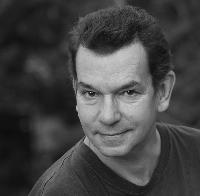'to heal' (trans) and 'to sing' -- similar sounding in your language? Trådens avsändare: Valters Feists
|
|---|
Valters Feists 
Lettland
Local time: 16:51
Engelska till Lettiska
+ ...
In which languages these two verbs (or their roots) are similar?
In my native language, Latvian, they pair nicely:
'to sing' = dziedât
'to heal' = dziedinât
(E.g., a healer heals an ill person; time will heal a lover's broken heart...)
Possibly, are the words 'song' and 'health' also similar in a language?
You can reply anytime; this is an ongoing research. ... See more ... See more In which languages these two verbs (or their roots) are similar?
In my native language, Latvian, they pair nicely:
'to sing' = dziedât
'to heal' = dziedinât
(E.g., a healer heals an ill person; time will heal a lover's broken heart...)
Possibly, are the words 'song' and 'health' also similar in a language?
You can reply anytime; this is an ongoing research. ▲ Collapse
| | | | Juan Jacob 
Mexiko
Local time: 07:51
Franska till Spanska
+ ...
| Well, not in spanish, nor french. | Jul 31, 2003 |
Spanish:
To heal = curar.
To sing = cantar.
French:
To heal = guérir.
To sing = chanter.
But that's nice, in your languaje !
See you.
| | | | | an answer for you from Italy | Jul 31, 2003 |
Valters Feists wrote:
In which languages these two verbs (or their roots) are similar?
In my native language, Latvian, they pair nicely:
'to sing' = dziedât
'to heal' = dziedinât
(E.g., a healer heals an ill person; time will heal a lover's broken heart...)
Possibly, are the words 'song' and 'health' also similar in a language?
You can reply anytime; this is an ongoing research. 
In Italian you can get a similarity:
sanare - suonare
Although to heal is mainly translated as "guarire" (intr.) or "far guarire" (tr.), you can also say "sanare" (slightly more archaic but perfectly intellegible).
Suonare means to play (an instrument), but definitely there is an assonance between the two verbs.
Wishing you success with your research.
raffa1
| | |
|
|
|
| Not in Danish, either | Jul 31, 2003 |
To heal = læge, hele, helbrede, kurere
To sing = synge, kvæde
Health = sundhed, helbred, helse
Song = sang, vise, kvad
But an interesting theory and very relevant for Latvian at least. I guess your theory is that shamans have used singing when healing patients.
I see two obvious reasons for the two words not being similar in any language: 1) Either they're not related, and 2) The relation has been clouded by new words or loanwords.
| | | | mgjekel (X)
Local time: 15:51
Nederländska
+ ...
| Sorry, no similarities in Dutch either! (to heal=genezen & to sing =zingen) | Jul 31, 2003 |
Valters Feists wrote:
In which languages these two verbs (or their roots) are similar?
In my native language, Latvian, they pair nicely:
'to sing' = dziedât
'to heal' = dziedinât
(E.g., a healer heals an ill person; time will heal a lover's broken heart...)
Possibly, are the words 'song' and 'health' also similar in a language?
You can reply anytime; this is an ongoing research. 
| | | | | Connection in English | Jul 31, 2003 |
I found a connection in English
lullaby - song to send a child to sleep
to lull - to soothe
to soothe - to make pain less acute
and so..
to heal
I agree there must be link between the idea of song and the idea of cure
I am going to Latvia in August - anything I should know?
best
Spencer
| | | | | Also sanar for to heal | Jul 31, 2003 |
In Spanish we also have sanar for to heal.
so it could be: to heal-sanar
to sing-cantar
Just another option.
| | |
|
|
|
Atenea Acevedo (X) 
Local time: 07:51
Engelska till Spanska
+ ...
| curar y sanar | Aug 1, 2003 |
Aida Alvarez wrote:
In Spanish we also have sanar for to heal.
so it could be: to heal-sanar
to sing-cantar
Just another option.
Aída is right, "curar" means to cure or heal someone and "sanar" means to get better or heal. However, sanar and cantar don't share a common root.
| | | | | To sing is to feel good? | Aug 5, 2003 |
Dear Valters,
Can it be that dziedinât(dzied-in-ât?)is a verb *derived* from dziedât(dzied-ât),
e.g. a causative =>
'to heal' (CAUSE 'to sing'),
I know that in Lithuanian the suffix -in- sometimes has this meaning.
It's a nice thought anyway: that by making someone sing, you heal them.
Mario
Valters Feists wrote:
In which languages these two verbs (or their roots) are similar?
In my native language, Latvian, they pair nicely:
'to sing' = dziedât
'to heal' = dziedinât
(E.g., a healer heals an ill person; time will heal a lover's broken heart...)
Possibly, are the words 'song' and 'health' also similar in a language?
You can reply anytime; this is an ongoing research. 
| | | | Jack Doughty 
Storbritannien
Local time: 14:51
Ryska till Engelska
+ ...
In memoriam | "Sing" and "drink" in Russian | Aug 5, 2003 |
In Russian, the verb to sing is "ïåòü" and the verb to drink is "ïèòü" (Set View>Encoding>Cyrillic Windows to read this).
They are both irregular verbs and easy for a non-native-speaker to confuse. I thought at first that the song "Ïîé, ñîëîâóøêà, ïîé!" (Sing, Nightingale, Sing!) was "Drink, Nightingale, Drink!"
| | | | To report site rules violations or get help, contact a site moderator: You can also contact site staff by submitting a support request » 'to heal' (trans) and 'to sing' -- similar sounding in your language? | TM-Town |
|---|
Manage your TMs and Terms ... and boost your translation business
Are you ready for something fresh in the industry? TM-Town is a unique new site for you -- the freelance translator -- to store, manage and share translation memories (TMs) and glossaries...and potentially meet new clients on the basis of your prior work.
More info » |
| | Trados Business Manager Lite |
|---|
Create customer quotes and invoices from within Trados Studio
Trados Business Manager Lite helps to simplify and speed up some of the daily tasks, such as invoicing and reporting, associated with running your freelance translation business.
More info » |
|
| | | | X Sign in to your ProZ.com account... | | | | | |










